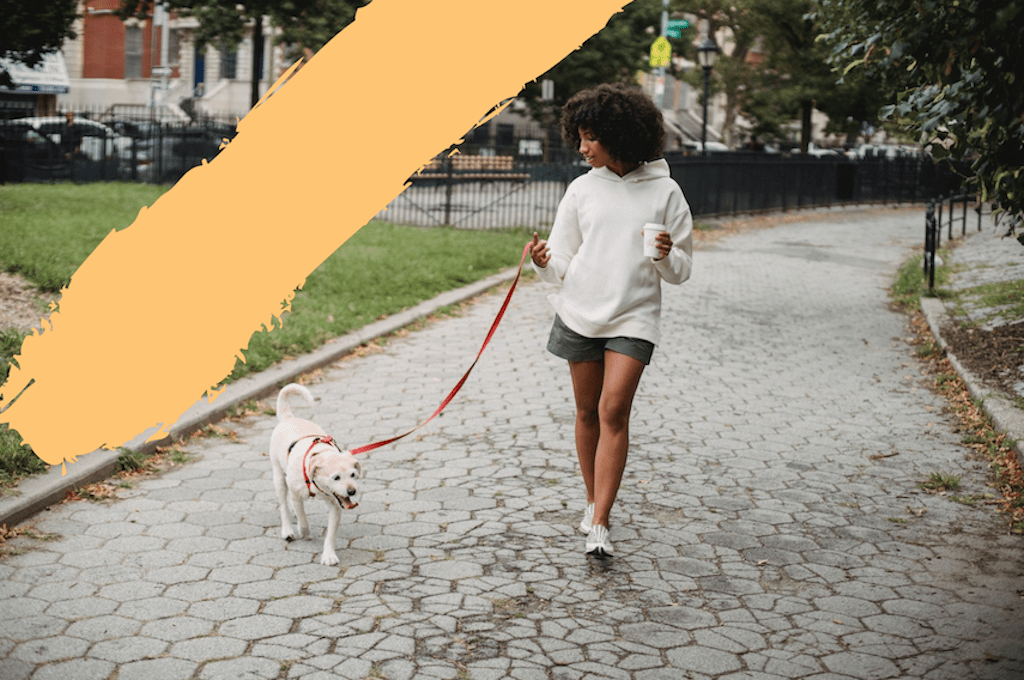As the author Orhan Pamuk once so deftly put it, ‘’Dogs do speak, but only to those who know how to listen’’. If you’re to listen to your pup as you head off on holiday without them, you’ll hear that they’ll miss you as much as you miss them.
And as the photographer and writer Roger Caras said so succinctly, ‘’Dogs are not our whole life, but they make our lives whole’’. As such, if you’re tempted to take yours on holiday, so it truly feels like the whole family has come along, then rest assured that you’ll enrichen the experience for both pet and owner by doing so.
Though doing so can sometimes be a stressful experience, if anything, the COVID-19 pandemic has perhaps simplified the process for some. After all, there’s no need to worry about stressful admin as you can’t go overseas. Not yet, anyway. And with social distancing measures required, your dog will likely have that extra bit of waggle room in and round your destination, to run free and explore.
Regardless, a staycation with your furry friend isn’t a walk in the park. Remember that you’re a long way from home and can’t rely on your normal routine; your whole trip could well come unstuck if you aren’t prepared.
As a result, it’s essential to consider a couple of pressing factors before your trip to ensure you are ready for anything your holiday throws at you. Look at it this way – your getaway will be more enjoyable if your dog is happy, and your dog will be happier if your getaway is enjoyable.
With that in mind, here’s how to ensure that taking your dog on holiday is a pleasure not a chore.
LONG JOURNEYS
Canines aren’t as equipped at dealing with long journeys as people. Though we’ve already speculated that they might actually be able to speak, let’s be realistic here; your dog can’t read or listen to music to pass the time, and they can’t turn on the air conditioning to cool themselves down when they’re hot. All in all, taking a long car trip can be uncomfortable for dogs that aren’t used to them.
A smart strategy is to take smaller journeys to ease them into the process. Steadily building from thirty minutes to an hour-plus should ensure they can go for extended periods without getting stressed out. So, in anticipation of your holiday, consider driving your dog for a walk in a few new locations which are incrementally further away each time, helping them get used to the ups and downs, twists and turns of car journeys.
However, there’s more to a road trip than just mileage. You also need to plan your route in advance. By doing this, you can stop off regularly to let your pet out to stretch their legs and go to the toilet. This will help them cool down from the stuffiness of the car, too.
If there aren’t many service stations, you should take a water bowl and snacks to stop your dog from suffering from dehydration and hunger as the journey unfurls.

SUPPLIES
Speaking of water and food, you shouldn’t forget or neglect your pet’s supplies, ideally packed for the duration of the trip. Animals have more of them than you realise, especially if you haven’t been on a trip with yours previously. Think of it like packing for a baby!
The key is to make sure that you have everything you need for the length of time that you’ll be away from the house. It’s not as if you can head back and nip into your home to top-up on the things you’ve forgotten. Therefore, bringing enough medication treats, and poo bags, to name but three, is imperative.
Make a checklist before you head out to make sure you remember everything, and research whether there are pet stores in the local area that you’re heading to as an extra blanket of security.
TAKE PRECAUTIONS AGAINST YOUR DOG GETTING LOST
Updating collars is also essential in case something happens and you lose your dog. When taking your dog for a walk on holiday, they may get disorientated. And if they do happen to get lost, finding their way back to an unfamiliar location can be difficult. Collars with the owner’s information mean anyone who finds them should contact you right away, whilst modern technology now means you can even access GPS tracking via some cutting-edge collars now emerging on the market.
A dog tick collar is a smart choice for holidays as your pooch will be enjoying extra time frolicking in the Great Outdoors and as such, could be more susceptible to bites and infections. Doing so kills two birds with one stone.
Having your dog microchipped is another layer of precaution which can provide you with peace of mind. Doing so means the little guy can be identified even if their collar breaks.
Finally, it’s sensible to establish a cautious routine for getting in and out of your car, so your dog learns the cues for their safe and calm exit from the vehicle, and isn’t tempted to make a break for freedom when you arrive at your destination. Placing a toy with a familiar scent in their basket can help your dog stay grounded and content in a new location, too.
HOSPITALITY
From the nature of your hotel or AirBnb rental to the bars and restaurants close to your accommodation, hospitality has a significant part to play in the happiness of your dog and ultimately, the outcome of your staycation. Everyone likes to stay in comfy digs and eat at fantastic, acclaimed local restaurants when they are away, but having a furry friend in tow can sometimes put these simple pleasures in jeopardy.
The problem with pets is that some establishments won’t let them in, and others may have strict rules governing how your pet behaves within their premises, both of which make life much harder for dog owners. Regarding your accommodation, it’s essential to check if a pet is permitted at all, as it’s not a given that a hotel, apartment or Airbnb will be pet-friendly. It all depends on the operator’s rules, so do check the fine print before proceeding.
Concerning pubs and restaurants, you should book in advance as there are restrictions on how many people can be inside at one point. Better still, prioritise places with outdoor seating or establishments that are overtly, proudly ‘’dog friendly’’; any self-respecting pub should be. Turning up and winging it – the old way of doing things – isn’t responsible during COVID and there’s a good chance that you’ll be turned away, with space now at a premium and dogs causing some issues with social distancing rules.
HOME COMFORTS
There’s a danger that in all the holiday excitement and planning, you assume that your dog is feeling the same sense of anticipation building as the rest of the family.
But canines enjoy routine, and when theirs is upended, they tend to react poorly. Indeed, a holiday might be stressful for your dog if everything is new, unfamiliar and foreign, and they could well suffer from homesickness if you leave all their usual home comforts behind. Thankfully, understanding this from the outset is vital as you can take measures to make the transition seamless and ensure your dog is happy and healthy throughout the trip.
For example, pack stuff that they use every day and can continue to use while you’re away. Whether it’s a bed or a blanket, the familiar touch and smell of their belongings should prevent your pet from getting stressed in a foreign environment. Essentially, you want to make the accommodation as ‘domestic’ as possible so that it feels like a home-away-from-home.
You should also take your dog for walks and serve their meals at the normal, expected times of day. Providing your dog with their usual, familiar routine will help your holiday together go without a hitch!
THE BOTTOM LINE
Your dog is a cherished member of the family, and taking them on holiday can be a nourishing, joyous bonding experience for everyone when done right. If you approach the trip unprepared, however, it can be a stressful time for all concerned. Follow our advice above, and ensure your holiday with your dog is memorable for all the right reasons!





